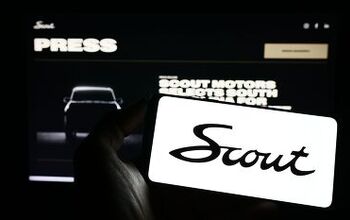Safety Group Leans on Ford to Recall 1.3 Million Explorers

After receiving negative attention from various policing agencies over a potential carbon monoxide leak in Explorer-based Interceptor Utility vehicles, Ford is being urged by the Center for Auto Safety to recall over a million vehicles. While the automaker hasn’t yet done so, it hasn’t been sitting on its hands, either. The automaker issued technical service bulletins to service centers, dispatched its own investigative teams to examine police fleets, and said it would work with the National Highway Traffic Safety Administration as the agency conducted a probe of its own.
Ultimately, Ford said the vehicles were safe — attributing the claimed monoxide leaks to aftermarket modifications common on police vehicles. However, it also agreed to examine and repair any Explorer (for civilian or official use) in the hopes of reassuring worried owners. Meanwhile, customer complaints ballooned after news of the story broke.
In July of 2016, the NHTSA had fewer than 200 Explorer-related grievances on file. The Center for Auto Safety claims that number has now grown to 1,400.
Some of these reports could be due to media-induced anxiety. But many drivers still report strong-smelling exhaust fumes under acceleration and feeling light-headed behind the wheel. Some have even taken legal action, and at least one couple saw Ford repurchase their 2016 model year Explorer — claiming they were too afraid to drive it.
While the NHTSA points to tiny cracks in the exhaust manifold as a possible culprit, it has not definitively linked carbon monoxide exposure to any of the injuries reported by police departments. The investigation now includes Ford Explorers ranging from the 2011 to 2017 model years, but again, there’s no conclusive finding.
That’s not good enough for the Center for Auto Safety. In a public letter addressed to Ford CEO Jim Hackett, the group condemned the automaker for not recalling all 1.3 million last October when initially asked to do so. It claims complaints to the NHTSA have increased by 900 percent since July 2016.
“In response to thousands of complaints by Ford owners of being exposed to dangerous levels of toxic chemicals, and despite the owner’s manual for their vehicles noting the ‘dangerous effects’ of exposure to Carbon Monoxide, Ford continues to insist there’s nothing to see here,” said Jason Levine, executive director of the Center for Auto Safety.
“Ford needs to stop sending mixed messages to Explorer owners and passengers, including senior citizens and parents of young children, that the vehicles are ‘safe,’ and that repairs are available only for ‘peace of mind.’ Since some Ford dealers are responsibly replacing cracked exhaust manifolds, it is time for Ford to take a more serious step, recall all of these vehicles, and inspect and replace cracked exhaust manifolds,” Levine concluded.
According to Automotive News, Ford issued a corporate response to the letter — stating that it takes the matter seriously but has found nothing to indicate there is anything wrong with the SUVs in question.
“Explorers are safe,” spokeswoman Elizabeth Weigandt said. “Ford’s investigation and extensive testing has not found carbon monoxide levels that exceed what people are exposed to every day. The safety of our customers is paramount. We encourage customers with carbon monoxide concerns to bring their vehicle to their local Ford dealer for a free service designed to reduce the concern. If they are not satisfied with the service, we encourage them to call our dedicated hotline at 888-260-5575.”
As for what the free service entails, TTAC’s Bozi Tatarevic found that Ford’s technical service bulletins amounted to telling centers to use seam sealer to shore up a few holes — but doesn’t appear to deal with the possibility of a cracked manifold. But if there’s actually no issue, as Ford claims, then the repairs are only being performed for peace of mind anyway.
[Image: Ford Motor Company]

A staunch consumer advocate tracking industry trends and regulation. Before joining TTAC, Matt spent a decade working for marketing and research firms based in NYC. Clients included several of the world’s largest automakers, global tire brands, and aftermarket part suppliers. Dissatisfied with the corporate world and resentful of having to wear suits everyday, he pivoted to writing about cars. Since then, that man has become an ardent supporter of the right-to-repair movement, been interviewed on the auto industry by national radio broadcasts, driven more rental cars than anyone ever should, participated in amateur rallying events, and received the requisite minimum training as sanctioned by the SCCA. Handy with a wrench, Matt grew up surrounded by Detroit auto workers and managed to get a pizza delivery job before he was legally eligible. He later found himself driving box trucks through Manhattan, guaranteeing future sympathy for actual truckers. He continues to conduct research pertaining to the automotive sector as an independent contractor and has since moved back to his native Michigan, closer to where the cars are born. A contrarian, Matt claims to prefer understeer — stating that front and all-wheel drive vehicles cater best to his driving style.
More by Matt Posky
Latest Car Reviews
Read moreLatest Product Reviews
Read moreRecent Comments
- MaintenanceCosts Most of the article after the blockquote is Posky laboring mightily to somehow blame this clearly anticompetitive and oligopolistic conduct on the big bad government.I look forward to some of the usual commenters explaining to us that, actually, the oil industry is a cuddly teddy bear and the real villain is people trying to sell us cars that don't use oil.
- Bd2 A modest price bump for one of the better if not the best vehicle in it's class. And it's a very good deal still considering the Front wheel drive competition over at Lexus to name one. These Genesis vehicles are more like BMWs of the 90s but with better styling.
- Dave M. What???? Big business taking advantage of us? I thought it was all Biden's fault!?!
- OA5599 Now if we could only get Toyota to change BZ4X...
- FreedMike You mean the petroleum market is manipulated and doesn't respond to normal supply/demand? No way. Can't be. This, folks, is why electrification is important - the only reason why the petroleum industry gets away with this is because they were the only game in town for over a century. That has GOT to change or we'll keep getting ripped off.

































Comments
Join the conversation
If it's really just some holes in the rear of the body that need to be sealed, then fine, but it would be nice if Ford would say whether or not they've found any cracked manifolds.
Kudos to Matt for a balanced article.